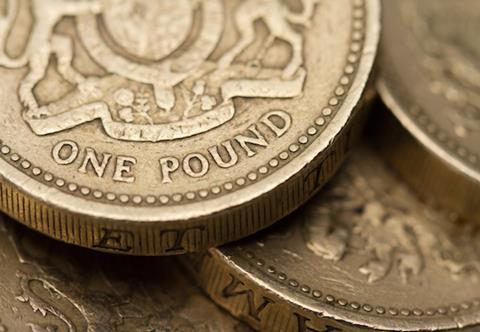
Total pay, including bonuses, fell by 0.4% in real terms for employees in Great Britain between February-April 2016 and February-April 2017, according to research by the Office for National Statistics (ONS).
Its UK labour market: June 2017 report, also found that regular pay, excluding bonuses, fell by 0.6% in real terms between February-April 2016 and February-April 2017. This is the lowest growth rate in Great Britain since June-August 2014.
In nominal terms, which have not been adjusted for consumer price inflation, total pay increased by 2.1% between February-April 2016 and February-April 2017. This is lower than the 2.3% growth rate recorded between January-March 2016 and January-March 2017. The annual growth rate for total pay, in nominal terms, has not fallen below 2.1% since October-December 2015.
Regular pay in nominal terms increased by 1.7% between the three months to April 2016 and the three months to April 2017, which is less than the 1.8% growth rate between January-March 2016 and January-March 2017. In nominal terms, the annual growth rate for regular pay has not been lower than 1.7% since August-October 2014.
Average total pay, including bonuses, was £502 a week in nominal terms before tax and other deductions from pay for employees in Great Britain in April 2017. This compares to £497 a week in April 2016. Average regular pay, excluding bonuses, was £472 a week in April 2017, increasing from £464 a week in April 2016.
In real terms, which have been adjusted for consumer price inflation, average total pay for employees in Great Britain was £487 a week in April 2017, before tax and other deductions from pay. Average regular pay in real terms, excluding bonus payments, was £458 a week in April 2017, before tax and other deductions from pay.
Average total pay for employees in Great Britain, in nominal terms, increased by 33.5% between January 2005 and April 2017, rising from £376 a week to £502 a week. Over the same time period, the Consumer Prices Index, including owner occupiers’ housing costs (CPIH), increased by 31.8%.
Mariano Mamertino, Europe, Middle East and Africa (EMEA) economist at Indeed, said: “For several months, and throughout the election campaign, the greatest concern over the labour market has shifted from those who are out of work to those who are in work, and how their living standards are being steadily squeezed.
“The reason is pay rises are no longer just being outpaced, but left behind, by accelerating inflation. Consumer prices have risen by 2.9% in the past 12 months, yet by April average wages were creeping up at just 1.7% a year. That gaping mismatch will inevitably morph from a source of pain for [employees] into a threat to the wider economy. Real wages aren’t just falling, they’re stuck in reverse, and this risks undermining Britain’s increasingly fragile economic growth.”
Ian Brinkley, acting chief economist at the Chartered Institute for Personnel and Development (CIPD), added: “The figures confirm that real wages have fallen again, the third month in a row, as measured by average weekly earnings. The sharp fall in earnings growth is remarkably broad-based, which is due to a combination of persistently low productivity growth and a fall in confidence among employers about the future prospects for demand in the UK economy.
“The only sustainable solution to weak pay growth is to address the fundamental cause, which is the UK’s poor productivity performance. The new government should not allow the current short-term political uncertainty and looming Brexit negotiations to distract from the need to address key issues, such as managerial quality, skills development for the whole workforce, and work organisation and progression. We hope that the Queen’s Speech will include a commitment to draw up a new long-term productivity plan based on consultations with a wide range of industrial and professional organisations and trade unions, including a clear focus on the workplace.”











